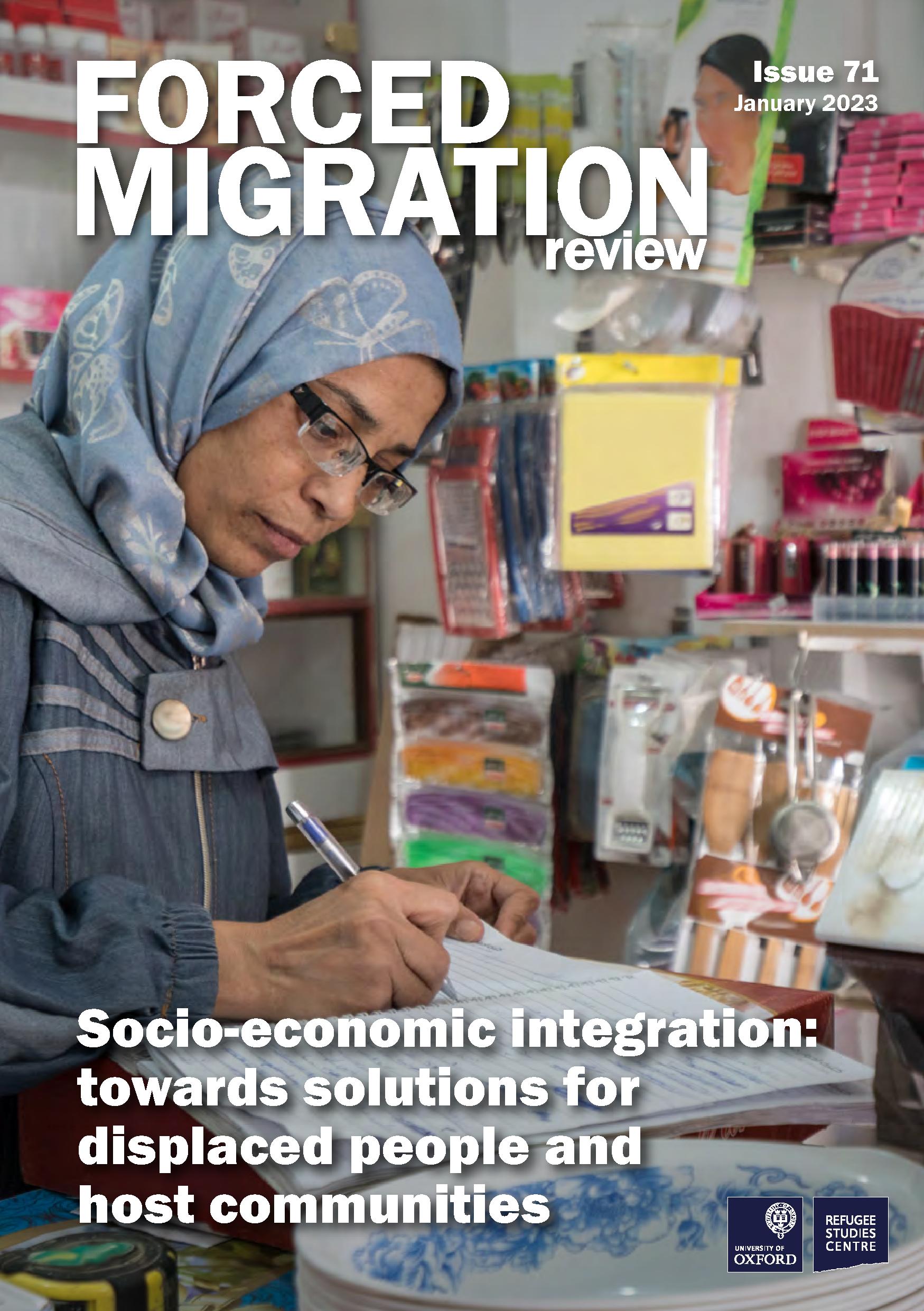FMR 71 – Socio-economic integration: towards solutions for displaced people
From the Editors
Foreword – Socio-economic integration: from crisis to opportunity
Socio-economic integration – what is it, and why does it matter?
Opening the global digital economy to refugees
Local integration, local settlement and local solutions: disentangling the conceptual confusion
The notion of ‘local integration’ is frequently used in relation to refugees, and yet it lacks any formal definition in international law. The lack of clarity surrounding the concept is reinforced by its frequent confusion with a related but different…
The role of social connections in refugees’ pathways towards socio-economic integration
The pivotal role of social connections in refugee integration has been long recognised as one of the key domains of the UK government’s Indicators of Integration framework, and has been widely explored by academic, practice and policy literature.[1] Social connections…
Six years after the Jordan Compact: the effect of labour market policies on Syrians’ economic integration
The issues affecting refugees’ socio-economic integration are complex and multifaceted, requiring a whole-of-community approach. These factors include access to work, mobility, financial services, education, health, housing and social integration services, as well as issues related to social cohesion and tensions…
How schools and other public services in the US can promote refugee integration
For adolescent refugees who have been resettled, the education system can be a fundamental part of adjusting to a new society.[1] Beyond simply facilitating academic advancement, school systems – when equipped with the right resources – can nurture the types…
